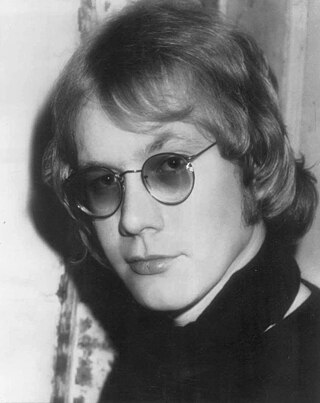
Warren William Zevon was an American rock singer, songwriter, and musician. His most famous compositions include "Werewolves of London", "Lawyers, Guns and Money", and "Roland the Headless Thompson Gunner". All three songs are featured on his third album, Excitable Boy (1978), the title track of which is also well-known. He also wrote major hits that were recorded by other artists, including "Poor Poor Pitiful Me", "Accidentally Like a Martyr", "Mohammed's Radio", "Carmelita", and "Hasten Down the Wind".

Warren Zevon is the second studio album by American musician Warren Zevon. This album was recorded in 1975 and released on May 18, 1976, by Asylum Records. A remastered version of the album with bonus tracks was released in 2008 by Rhino Records.

Excitable Boy is the third studio album by American musician Warren Zevon. The album was released on January 18, 1978, by Asylum Records. It includes the single "Werewolves of London", which reached No. 21 and remained in the American Top 40 for six weeks. The album brought Zevon to commercial attention and remains the best-selling album of his career, having been certified platinum by the RIAA and reaching the top ten on the US Billboard 200. A remastered and expanded edition was released in 2007.

Genius: The Best of Warren Zevon is a compilation album by American musician Warren Zevon, released in 2002.

Life'll Kill Ya is the tenth studio album by American singer-songwriter Warren Zevon. The album was released on January 25, 2000, by Artemis Records. It was later hailed in Rolling Stone as his best work since Excitable Boy.

Sentimental Hygiene is the sixth studio album by rock singer-songwriter Warren Zevon and his first "sober" one. The album was released on August 29, 1987, by Virgin Records. The release of Sentimental Hygiene marked the first studio album for Zevon in five years. It produced the single "Reconsider Me", as well as the dance single "Leave My Monkey Alone". The band on the album includes guitarist Peter Buck, bassist Mike Mills and drummer Bill Berry, who also recorded an album of covers with Zevon at this time.

Mr. Bad Example is an album by the American musician Warren Zevon, released through Giant Records in October 1991. Zevon supported the album with a North American tour, with the Odds serving as both opener and backing band.

Bad Luck Streak in Dancing School is the fourth studio album by American singer-songwriter Warren Zevon. The album was released on February 15, 1980, by Elektra Records. Three singles were released from the album, one of which charted: "A Certain Girl" reached No. 57 on the Billboard Hot 100 and was Zevon's second and final hit on that chart.
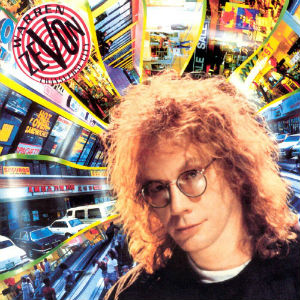
Transverse City is the seventh studio album by American recording artist Warren Zevon, released in October 1989 by Virgin Records. It features appearances from a number of prominent musicians, including guitarists Neil Young, David Gilmour, Jerry Garcia and Mike Campbell, as well as jazz pianist Chick Corea. Michael Ironside provides narration on the track "Run Straight Down."

The Wind is the twelfth and final studio album by American singer-songwriter Warren Zevon. The album was released on August 26, 2003, by Artemis Records. Zevon began recording the album shortly after he was diagnosed with inoperable pleural mesothelioma, and it was released just two weeks before his death on September 7, 2003. The album was awarded the Grammy Award for Best Contemporary Folk Album, and "Disorder in the House", performed by Zevon with Bruce Springsteen, won the Grammy for Best Rock Vocal Performance. Songs from the album were nominated for an additional three Grammys.

I'll Sleep When I'm Dead (An Anthology) is a two-disc compilation album by American singer-songwriter Warren Zevon, released on Rhino Records in 1996. It spans his career from his eponymous debut album on Asylum Records to date of release, ignoring his disowned initial album from 1969, Wanted Dead or Alive. It contains tracks from all ten of his albums released during this period, and includes contributions to soundtracks and his one-off album with members of R.E.M., Hindu Love Gods.
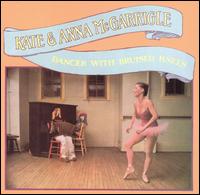
Dancer with Bruised Knees is the second album by Kate & Anna McGarrigle, released in 1977. It was produced by Joe Boyd. The album employed several notable folk musicians to contribute a bluegrass feel to many of the tracks. The album also includes three French songs, one by the McGarrigles with Philippe Tatartcheff, and two traditional numbers. The guest musicians included John Cale, Dane Lanken, Bill Monroe, Dave Mattacks and Pat Donaldson. Dancer with Bruised Knees peaked a No. 35 on the UK Albums Chart.
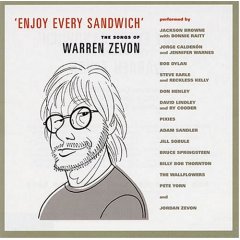
Enjoy Every Sandwich: The Songs of Warren Zevon, released in 2004, is a tribute album to the late Warren Zevon by several well-known musicians. It includes a previously unreleased Zevon composition: "Studebaker", sung by Warren's son Jordan Zevon.
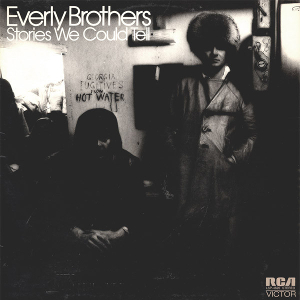
Stories We Could Tell is a country rock album by The Everly Brothers, released in 1972. It was reissued as Stories We Could Tell:The RCA Years by BMG in 2003 and included additional tracks, all stemming from the successor album Pass the Chicken & Listen. In 2014 it was re-released once more on Stories We Could Tell + Pass The Chicken & Listen by Morello Records.

Gasoline Alley is the second solo studio album by the British singer-songwriter Rod Stewart. It was released on 12 June 1970 by Vertigo Records. It is a collection of covers combined with Stewart's own compositions. Like many of Stewart's solo albums from the period, it featured significant musical contributions from the other members of his band Faces.
"Roland the Headless Thompson Gunner" is a song composed by Warren Zevon and David Lindell and performed by Zevon. It was included on Zevon's 1978 album Excitable Boy, and while never released as a single became a fan favorite. It was the last song he performed in front of an audience, during an October 2002 appearance on The Late Show with David Letterman, before his death in 2003.
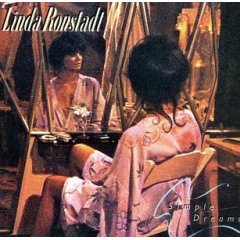
Simple Dreams is the eighth studio album by the American singer Linda Ronstadt, released in 1977 by Asylum Records. It includes several of her best-known songs, including her cover of the Rolling Stones song "Tumbling Dice" and her version of the Roy Orbison song "Blue Bayou", which earned her a Grammy nomination for Record of the Year. The album also contains covers of the Buddy Holly song "It's So Easy!" and the Warren Zevon songs "Poor Poor Pitiful Me" and "Carmelita". The album was the best-selling studio album of her career, and at the time was the second best-selling album by a female artist. It was her first album since Don't Cry Now without long-time musical collaborator Andrew Gold, though it features several of the other Laurel Canyon-based session musicians who appeared on her prior albums, including guitarists Dan Dugmore and Waddy Wachtel, bassist Kenny Edwards, and producer and multi-instrumentalist Peter Asher.
Big Beaver is an organized hamlet in the Canadian province of Saskatchewan.
"Mohammed's Radio" is a song by American singer-songwriter Warren Zevon. The song was released on his 1976 album Warren Zevon. The song was featured on A Quiet Normal Life: The Best of Warren Zevon and several other greatest hits-type albums by Zevon. Fleetwood Mac members Lindsey Buckingham and Stevie Nicks are also featured on this recording, as are Bobby Keys, Bob Glaub, and Waddy Wachtel.
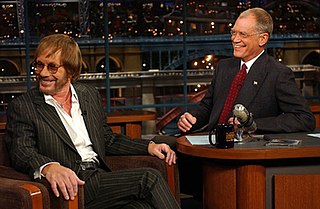
Shortly after being diagnosed with terminal lung cancer, American singer-songwriter Warren Zevon made his final public appearance on the late-night talk show Late Show with David Letterman on October 30, 2002. Zevon, who had regularly appeared on the show over the preceding decade, was unusually given the majority of the episode to talk with Letterman and perform three songs. The episode is known for the humor that Zevon used throughout the interview, as well as his quip that his terminal diagnosis was a reminder to "enjoy every sandwich".

















